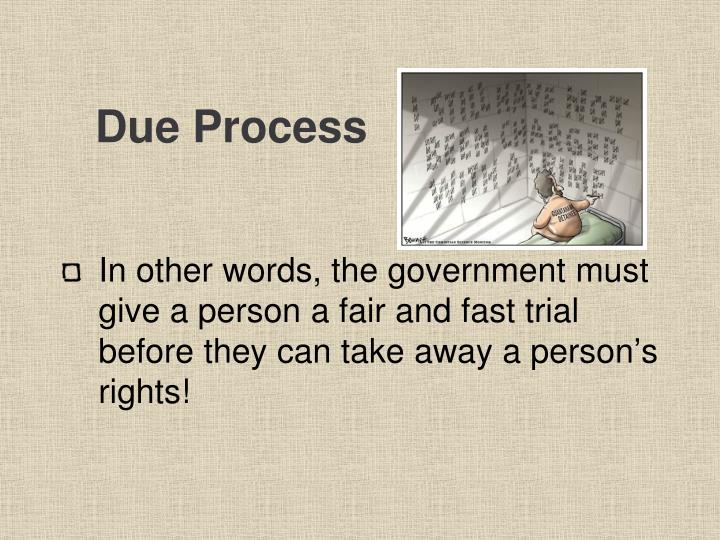

This is because it does not give people sufficient or fair notice of what the law requires.Īnother, more controversial application of the Clause is the doctrine today called “substantive due process,” which extends beyond the methods government institutions use to make decisions, and places substantive limits on governmental authority. A statute that is extremely unclear can be, in the Court’s terms, void for vagueness.

Likewise, fair notice and the opportunity to be heard are due process requirements in criminal, civil, and other proceedings. The Court also attributes to the Due Process Clause a notice requirement that applies to statutes rather than executive and judicial action. Governmental actors violate due process when they frustrate the fairness of proceedings, such as when a prosecutor fails to disclose evidence to a criminal defendant that suggests they may be innocent of the crime, or when a judge is biased against a criminal defendant or a party in a civil action. A more specific application of the Clause is the doctrine today called “procedural due process,” which concerns the fairness and lawfulness of decision making methods used by the courts and the executive. At the most general level, the clause reiterates the principle of the rule of law: the government must act in accordance with legal rules and not contrary to them.

except by lawful judgment of his peers or by the law of the land.” This language and its subsequent refinements gave rise to the concept of “due process of law,” and influenced the drafters of the Due Process Clause of the Fifth Amendment to the United States Constitution.Īlthough the Fifth Amendment Due Process Clause is brief, important parts of the Supreme Court’s constitutional doctrine rest on it.
Due process amendments free#
Chapter 39 provided that “o free man shall be arrested or imprisoned. The Magna Carta, a statement of subjects’ rights issued by King John of England in 1215, became well known over the centuries. The principle that the government should be limited in how it makes decisions that are detrimental to private people is very old in Anglo-American law.


 0 kommentar(er)
0 kommentar(er)
